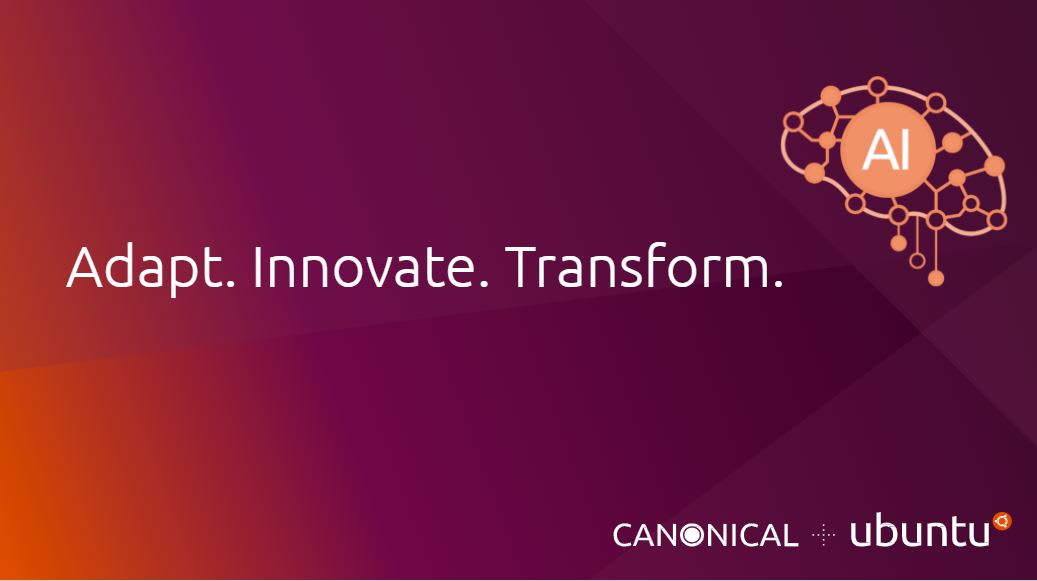Can AI help redefine the future of finserv?
Andreea Munteanu
on 11 February 2021
Tags: AI , financial-services , Kubeflow
The last few years has been a time of major disruption in the Finserv sector. Artificial Intelligence (AI) technology has emerged as an important tool for providers of financial products and services to deliver more personalised and more sophisticated services to customers faster. The financial services sector is at the beginning of an exciting journey with AI – a journey that we believe will spark a revolution and redefine financial services. Kris Sharma, Financial Services Lead at Canonical has approached this subject from various perspectives.

Finserv AI /ML journey
Today’s challenge for financial services institutions is to shift their focus from what they need to do internally to the needs of their customers. Until recently, traditional methods of data analysis have been used for various applications, including the detection of fraud and predicting defaults that require complex and time-consuming investigations. With open source technologies such as Kubeflow and Apache Kafka, the fintech industry can build innovative solutions to offer products and services tailored to individual consumer needs. AI technology truly has the potential to transform how fintechs deal with regulatory compliance issues, financial fraud, and cybercrime.
Accelerate innovation using AI
Kris Sharma highlights in PaymentsSource article that AI technology will accelerate innovation within finserv sector and how the economic fallout from the coronavirus crisis has spurred AI tech adoption within financial services institutions.
AI Tech – Finserv’s future?
By 2025, the usage of AI is expected to reach $25 billion, from $6 billion in 2019, which is why it became a top priority for financial services. It sets a new direction for the industry that you can read more about in FinanceDigest.
AI will allow finservs to further automate their business processes and to leverage new and big data sources to redefine how they work, create innovative new products and services, and transform customer experiences.
To know more about how Canonical is partnering with financial institutions around the world and helping them drive innovation at scale
Further reading:

Run Kubeflow anywhere, easily
With Charmed Kubeflow, deployment and operations of Kubeflow are easy for any scenario.
Charmed Kubeflow is a collection of Python operators that define integration of the apps inside Kubeflow, like katib or pipelines-ui.
Use Kubeflow on-prem, desktop, edge, public cloud and multi-cloud.

What is Kubeflow?
Kubeflow makes deployments of Machine Learning workflows on Kubernetes simple, portable and scalable.
Kubeflow is the machine learning toolkit for Kubernetes. It extends Kubernetes ability to run independent and configurable steps, with machine learning specific frameworks and libraries.

Install Kubeflow
The Kubeflow project is dedicated to making deployments of machine learning workflows on Kubernetes simple, portable and scalable.
You can install Kubeflow on your workstation, local server or public cloud VM. It is easy to install with MicroK8s on any of these environments and can be scaled to high—availability.
